http://www.ynetnews.com/articles/0,7340,L-4643349,00.html
3,000-year-old artifacts from Egypt rule of Canaan found in Negev cave
Artifacts were used by the tribe of Judah, the only tribe of Israel not to be exiled to Babylon in the late Bronze Age and the Iron Age.
Itay Blumental
|
Inspectors from the Unit for the Prevention of Antiquities Robbery arrived at the cave to discover robbers had already broken into it and began looting pottery vessels from the Late Bronze Age (circa 1,500 BCE) and the Iron Age (1,000 BCE) and caused damage to the cave and the artifacts entombed within it.
To save the archaeological artifacts, the IAA inspectors carried out a salvage excavation during which they discovered over 300 pottery vessels of different types, some of which were still intact. They also found dozens of pieces of jewelry made of bronze, shells and faience, unique vessels fashioned from yellowish alabaster, seals, seal impressions and cosmetic vessels.
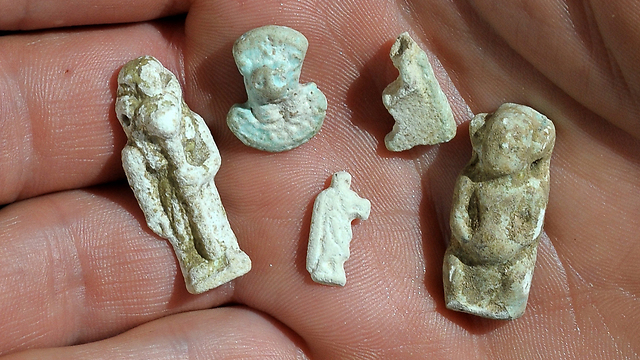
Faience amulets depicting images of Egyptian gods (Photo: Clara Amit, IAA)
"Among the many artifacts that were discovered, most of which are characteristic of the Judahite culture (the tribe of Judah, which wasn't exiled to Babylon) in the south of the country, we found dozens of stone seals, some of which are shaped in the form of a winged beetle (scarabs) and bear carved symbols and images typical of the Egyptian culture which prevailed in the country in the Late Bronze Age. Some of the seals were fashioned on semi-precious stones that come from Egypt and the Sinai Peninsula," said Amir Ganor, the director of the Prevention of Antiquities Robbery unit.
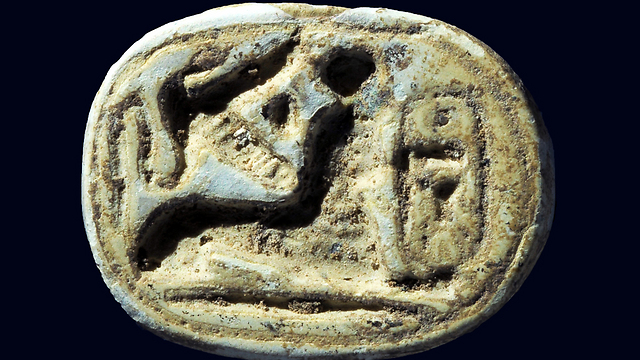
A scarab seal of the Egyptian pharaoh Thutmose III. A sphinx is crouching near the pharaoh's name (Photo: Clara Amit, IAA)
According to Dr. Daphna Ben-Tor, curator of Egyptian archaeology at the Israel Museum, "Most of the scarab seals found in the excavation date to the fifteenth–fourteenth centuries BCE. During this period Canaan was ruled by Egypt."
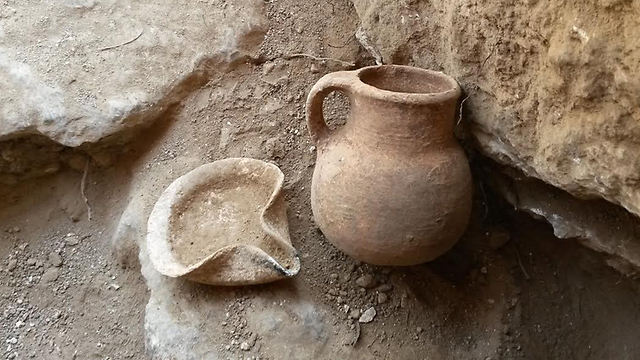
An oil lamp and a ceramic jar that date to the Iron Age, which were discovered in the cave (Photo: IAA)
"The names of kings appeared on some of the seals," Dr. Ben-Tor added. "Among other things, we can identify a sphinx lying opposite the name of the pharaoh Thutmose who reigned from about 1504–1450 BCE. Another scarab seal bears the name of Amenhotep who reigned from about 1386–1349 BCE. Still another scarab depicts Ptah, the principal god of the city of Memphis."
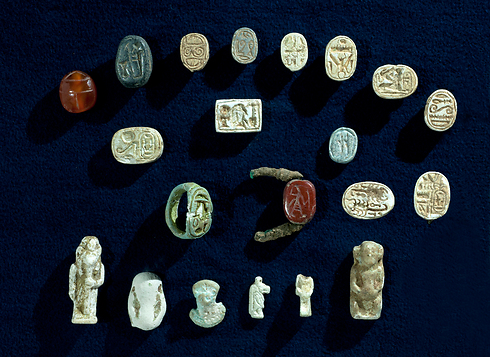
A collection of artifacts with characteristics of the Egyptian culture, which were discovered in the excavation (Photo: Clara Amit, IAA)
Other artifacts discovered included seal rings made of faience and a wealth of figurines and amulets in the image of gods sacred to the Egyptian culture.
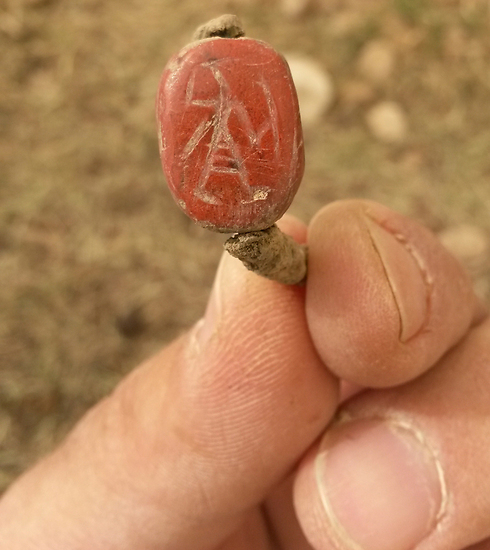
A ring that was discovered in the excavation which is inlaid with a seal depicting an Egyptian warrior holding a shield and sword (Photo: IAA)
"It is true the Israelites left Egypt but the evidence from the excavation in the cave shows the Egyptians did not leave the Israelites and their descendants," Ganor said. "This has been attested to in archaeological excavations where we uncovered evidence from many years after the 'Exodus' which reflects the influence of Egyptian culture on the Judahite residents of the country."
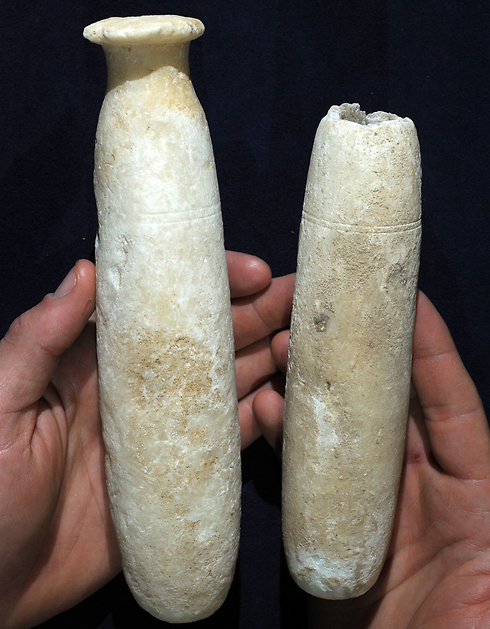
Alabaster bottles that were discovered in the cave (Photo: Clara Amit, IAA)
Dr. Amir Golani of the IAA added, "During the Late Bronze Age Egypt was an extremely powerful empire and imposed its authority throughout our region. Egyptian authority was not only in manifested in political and military control, but was also a strong cultural influence that contributed to shaping society. Along with an administration of Egyptian officials in Israel, a group of local elite evolved in the country, who adopted many of the Egyptian customs and their artistry."
The artifacts were transferred to the IAA for further treatment. The investigation of the cave and the findings is still in its early stages and upon completing the treatment of the hundreds of objects that were exposed, it will be possible to add important information regarding Egypt's influence on the population of the Land of Israel in the biblical period, a statement from the IAA said.
No comments:
Post a Comment